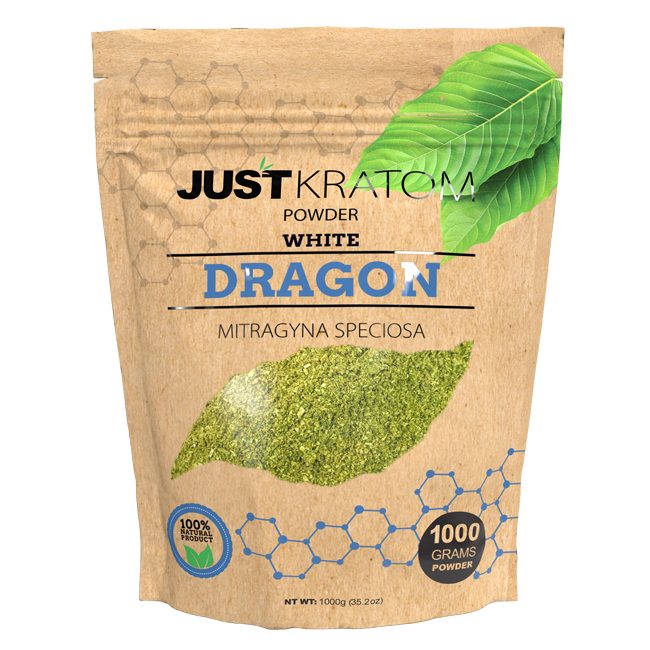Potential Interactions
Kratom, an herbal supplement derived from the Mitragyna speciosa tree, has gained popularity for its potential mood-boosting and pain-relieving effects. However, it’s crucial to understand that kratom can interact with certain medications, potentially leading to adverse effects or reduced effectiveness of treatment.
Stimulants
Kratom contains compounds that can mimic the effects of opioids and stimulants. These interactions can be particularly dangerous when combined with medications that also affect the central nervous system. For instance, taking kratom alongside opioid pain relievers like oxycodone or morphine could lead to dangerously amplified sedation or respiratory depression.
Stimulants such as amphetamines and methylphenidate (Ritalin) can interact with kratom in unpredictable ways. Mixing these substances may increase the risk of anxiety, agitation, insomnia, or cardiovascular problems. Individuals taking antidepressants should also exercise caution when using kratom, as it may interfere with their effectiveness or lead to serotonin syndrome.
Depressants
Depressants, such as benzodiazepines (like Xanax or Valium) and alcohol, can have a dangerous interaction with kratom. Combining these substances can significantly increase the risk of sedation, respiratory depression, and coma. The central nervous system depressant effects of both kratom and the depressant medication are compounded, leading to a heightened risk of serious health complications.
Opioids
It is important to be aware that kratom’s opioid-like effects can interact with various medications. Combining kratom with other substances that affect the central nervous system can lead to unpredictable and potentially dangerous consequences.
For example, mixing kratom with opioid pain relievers can intensify sedation and respiratory depression, putting individuals at risk of overdose. Stimulants like amphetamines or methylphenidate can interact unpredictably with kratom, potentially causing anxiety, agitation, insomnia, or cardiovascular problems. Antidepressants may also be affected by kratom, leading to reduced effectiveness or the risk of serotonin syndrome.
Depressants such as benzodiazepines and alcohol pose a significant risk when combined with kratom. This combination can dramatically increase sedation, respiratory depression, and the possibility of coma due to the synergistic effects on the central nervous system.
Blood Thinners
Blood thinners are medications that prevent blood clots from forming. These medications work by interfering with the clotting process in the body. Kratom’s interaction with blood thinners is a significant concern as it can potentially increase the risk of bleeding.
Kratom has been shown to affect platelet function, which plays a crucial role in blood clot formation. Using kratom alongside blood thinners may enhance this effect, leading to an increased risk of bruising, bleeding gums, or even serious internal bleeding. It is essential for individuals taking blood thinners to avoid kratom consumption to minimize the risk of complications.
Risk Factors
Certain medications and substances can interact dangerously with kratom due to its multifaceted effects on the body. Understanding these potential risks is crucial for anyone considering using kratom, especially those already taking other medications.
Dosage
Kratom’s ability to mimic both opioid and stimulant effects makes it prone to interactions with various medications. These interactions can be particularly dangerous when combined with medications that also affect the central nervous system.
Opioid pain relievers like oxycodone or morphine can lead to dangerously amplified sedation or respiratory depression when taken with kratom. Stimulants such as amphetamines and methylphenidate (Ritalin) can interact unpredictably, potentially increasing the risk of anxiety, agitation, insomnia, or cardiovascular problems.
Individuals taking antidepressants should also exercise caution, as kratom may interfere with their effectiveness or lead to serotonin syndrome. Depressants, including benzodiazepines like Xanax or Valium and alcohol, can have a dangerous interaction with kratom. This combination can significantly increase the risk of sedation, respiratory depression, and coma.
It is important to note that kratom’s opioid-like effects can also interact with blood thinners. Kratom has been shown to affect platelet function, which plays a crucial role in blood clot formation. Using kratom alongside blood thinners may enhance this effect, leading to an increased risk of bleeding.
Individual Metabolism
Kratom’s ability to mimic both opioid and stimulant effects makes it prone to interactions with various medications. These interactions can be particularly dangerous when combined with medications that also affect the central nervous system.
- Opioid pain relievers like oxycodone or morphine can lead to dangerously amplified sedation or respiratory depression when taken with kratom.
- Stimulants such as amphetamines and methylphenidate (Ritalin) can interact unpredictably, potentially increasing the risk of anxiety, agitation, insomnia, or cardiovascular problems.
- Individuals taking antidepressants should also exercise caution, as kratom may interfere with their effectiveness or lead to serotonin syndrome.
- Depressants, including benzodiazepines like Xanax or Valium and alcohol, can have a dangerous interaction with kratom. This combination can significantly increase the risk of sedation, respiratory depression, and coma.
- Kratom’s opioid-like effects can also interact with blood thinners. Kratom has been shown to affect platelet function, which plays a crucial role in blood clot formation. Using kratom alongside blood thinners may enhance this effect, leading to an increased risk of bleeding.
It is important to note that these are just some examples of potential interactions. There may be other medications or substances that can interact with kratom in dangerous ways.
Existing Health Conditions
Kratom’s ability to mimic both opioid and stimulant effects makes it prone to interactions with various medications. These interactions can be particularly dangerous when combined with medications that also affect the central nervous system.
- Opioid pain relievers like oxycodone or morphine can lead to dangerously amplified sedation or respiratory depression when taken with kratom.
- Stimulants such as amphetamines and methylphenidate (Ritalin) can interact unpredictably, potentially increasing the risk of anxiety, agitation, insomnia, or cardiovascular problems.
- Individuals taking antidepressants should also exercise caution, as kratom may interfere with their effectiveness or lead to serotonin syndrome.
- Depressants, including benzodiazepines like Xanax or Valium and alcohol, can have a dangerous interaction with kratom. This combination can significantly increase the risk of sedation, respiratory depression, and coma.
- Kratom’s opioid-like effects can also interact with blood thinners. Kratom has been shown to affect platelet function, which plays a crucial role in blood clot formation. Using kratom alongside blood thinners may enhance this effect, leading to an increased risk of bleeding.
It is important to note that these are just some examples of potential interactions. There may be other medications or substances that can interact with kratom in dangerous ways.
Precautions and Recommendations
When considering the use of kratom, it is crucial to be aware of its potential interactions with various medications. Kratom’s effects on the central nervous system and its ability to mimic both opioid and stimulant properties can lead to unpredictable and potentially dangerous consequences when combined with certain drugs.
Consult a Healthcare Professional
When considering the use of kratom, it is crucial to be aware of its potential interactions with various medications. Kratom’s effects on the central nervous system and its ability to mimic both opioid and stimulant properties can lead to unpredictable and potentially dangerous consequences when combined with certain drugs.

- Opioid pain relievers like oxycodone or morphine can lead to dangerously amplified sedation or respiratory depression when taken with kratom.
- Stimulants such as amphetamines and methylphenidate (Ritalin) can interact unpredictably, potentially increasing the risk of anxiety, agitation, insomnia, or cardiovascular problems.
- Individuals taking antidepressants should also exercise caution, as kratom may interfere with their effectiveness or lead to serotonin syndrome.
- Depressants, including benzodiazepines like Xanax or Valium and alcohol, can have a dangerous interaction with kratom. This combination can significantly increase the risk of sedation, respiratory depression, and coma.
- Kratom’s opioid-like effects can also interact with blood thinners. Kratom has been shown to affect platelet function, which plays a crucial role in blood clot formation. Using kratom alongside blood thinners may enhance this effect, leading to an increased risk of bleeding.
It is important to note that these are just some examples of potential interactions. There may be other medications or substances that can interact with kratom in dangerous ways.
Consult a healthcare professional before using kratom, especially if you are taking any other medications.
Monitor for Side Effects
Individuals considering the use of kratom should carefully monitor for potential side effects and be aware that it may interact with various medications.
Be vigilant about changes in mood, energy levels, sleep patterns, appetite, or gastrointestinal function. If you experience any adverse reactions or concerns, discontinue kratom use and seek medical advice immediately.
It is crucial to consult with a healthcare professional before using kratom, especially if you are taking other medications or have any underlying health conditions.
Avoid Combining with Certain Medications
Kratom can interact dangerously with certain medications. It’s crucial to be aware of these interactions before using kratom, especially if you are already taking medication.
Opioid pain relievers like oxycodone or morphine can cause dangerous increases in sedation and respiratory depression when combined with kratom. Stimulants like amphetamines and methylphenidate (Ritalin) can interact unpredictably, potentially leading to anxiety, agitation, insomnia, or cardiovascular problems.
Individuals taking antidepressants should exercise caution, as kratom may interfere with their effectiveness or lead to serotonin syndrome. Depressants, including benzodiazepines like Xanax or Valium and alcohol, pose a significant risk when combined with kratom, significantly increasing the risk of sedation, respiratory depression, and coma.
Kratom can also interact with blood thinners. It has been shown to affect platelet function, which is crucial for blood clotting. Using kratom alongside blood thinners may increase the risk of bleeding.
If you are considering using kratom, it is essential to consult with a healthcare professional to discuss potential interactions and risks.
Consider Alternatives

When considering kratom use, be aware that it can interact dangerously with various medications. It’s crucial to understand these potential interactions before incorporating kratom into your health regimen.
One important consideration is avoiding combinations that may lead to amplified sedation or respiratory depression. Opioid pain relievers like oxycodone or morphine, when combined with kratom, can significantly increase the risk of these serious effects.
Stimulants such as amphetamines and methylphenidate (Ritalin) can also interact unpredictably with kratom. These combinations may lead to heightened anxiety, agitation, insomnia, or cardiovascular problems.
Individuals taking antidepressants should exercise extreme caution when considering kratom use. Kratom may interfere with the effectiveness of antidepressants or potentially trigger serotonin syndrome, a life-threatening condition.
Similarly, combining kratom with depressants like benzodiazepines (Xanax, Valium) and alcohol can dramatically increase the risk of sedation, respiratory depression, and coma.
Kratom’s effects on blood clotting should also be considered. It has been shown to affect platelet function, which is essential for blood clot formation. Combining kratom with blood thinners may elevate the risk of bleeding complications.
Before using kratom, consult a healthcare professional to assess potential interactions with your current medications and overall health status. They can provide personalized advice and guidance regarding the risks and benefits of kratom use in your specific case.
Order Kratom Powder for a balanced lifestyle
- What Is The Vaseline Under The Eye Trick? - January 12, 2026
- What Is The Best Skin Tightening Procedure For Over 60? - January 11, 2026
- What Is Lip Filler Made From - January 8, 2026
